Future of Agriculture in Africa
The United Nation’s Food and Agriculture Organization has warned that declining biodiversity is threatening food supplies globally.
However, it is our food production systems that have been the major driver of biodiversity loss. Food and drink production has driven 75% of deforestation to date and agriculture is the top threat for 86% of plant and animal species known to be at risk of extinction.
Across Africa, agriculture has the potential to not only deliver food security but to be a driver of economic growth. It is, however, critical that environmental and societal impact are given priority when making decisions on the development of the sector.
How can the sector find the balance between creating economic opportunity and implementing sustainable practices that positively impact ecosystems? AfricaLive opens this debate to leaders from across the sector.
 The Agrihouse Foundation was born out of passion and knowledge seeking. I got started after attending many conferences and feeling confident that I had all I needed to get it off the ground. We have put together a good group of ambitious youth made of small holder farmers. I am pleased that we have young hardworking, ambitious women in the group as well. Our organisation seeks to nourish the minds and lives of youth who are curious and seek to know their place in society.
The Agrihouse Foundation was born out of passion and knowledge seeking. I got started after attending many conferences and feeling confident that I had all I needed to get it off the ground. We have put together a good group of ambitious youth made of small holder farmers. I am pleased that we have young hardworking, ambitious women in the group as well. Our organisation seeks to nourish the minds and lives of youth who are curious and seek to know their place in society.
We are an intervention for the youth when it comes to agriculture, and we seek to help them in that regard. Ghana has seven agriculture focused colleges; we gather some of the best students from these institutions and share our platform. We then help them acquire seed capital to get their agriculture businesses off the ground. The heaviest emphasis does not go to getting seed capital but rather getting the youth to formulate and believe in their ideas. Our organisation grew from passion, to actionable steps so that we can create an impact in communities.
Our passion for empowering women has also led us to start the Women in Food and Agriculture Leadership Forum, which helps empower women in the space. We have moved to ensure that all facets in the agriculture sector are growing in tandem. An overemphasis on crop farming leads to the neglect of animal rearing. Both need equal attention if our industry is going to achieve maximum potential. Our Livestock, Poultry and Fisheries Training and Trade show is an initiative that helps animal rearing catch up with crop farming in terms of importance.
Linking smallholder farmers with the buyers is a big need in our industry. We have provided a platform that does just that. Initiatives like that exist because of our ability to transfer ideas from our minds and execute them to impact real life situations. We have done well so far in changing narratives, and perspectives in terms of agriculture.
Alberta Nana Akyaa Akosa, CEO Agrihouse Foundation. Ghana
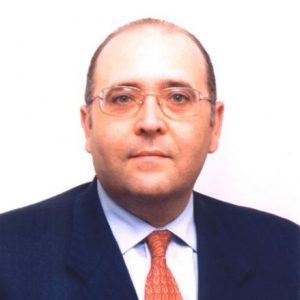 We are a consultancy firm that specialises in the agri-food value chain development. STECIA is involved from the input stage of the value chain to the farming, processing and the market access stage. We work in many value chains such as the fruit, vegetable, rice and essential oils value chain. Market access is one of the areas we focus on extensively to improve output as well as learning and implementing new farming techniques. Implementation of international quality standards and quality control are also vital for us to ensure we provide only the best for our growing population. Two years ago we started an entrepreneurship arm of our company upon the realisation that the youth will be a big part of the country’s agricultural agenda.
We are a consultancy firm that specialises in the agri-food value chain development. STECIA is involved from the input stage of the value chain to the farming, processing and the market access stage. We work in many value chains such as the fruit, vegetable, rice and essential oils value chain. Market access is one of the areas we focus on extensively to improve output as well as learning and implementing new farming techniques. Implementation of international quality standards and quality control are also vital for us to ensure we provide only the best for our growing population. Two years ago we started an entrepreneurship arm of our company upon the realisation that the youth will be a big part of the country’s agricultural agenda.
We aim to go on and create a new generation of entrepreneurs in the agricultural sector. Our entrepreneurship endeavour is being done in conjunction with a university in Dakar, Senegal (CESAG). It is a regional university that serves eight countries under the banner of the Economic and Monetary Union for West Africa. The university provides expertise as well as knowledge capital in management and finance to the students. We, on the other hand, work with our partners to fund activities that have to do with coaching and mentoring our first cohort of 40 entrepreneurs.
Walid Gaddas, Managing Director at STECIA International. Tunisia
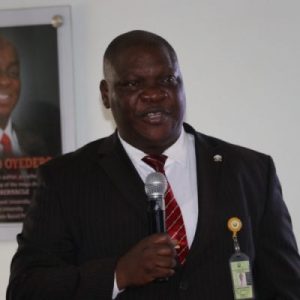 When we talk of higher education institutions, most of the time we speak of tertiary institutions like the polytechnics, colleges of agriculture and colleges of education; we rarely mention universities. Universities all over the world have a triple mandate which involves; teaching, research and community engagement. An African university today needs to focus on these three objectives and do an excellent job at equipping the younger generation in order to maintain relevance.
When we talk of higher education institutions, most of the time we speak of tertiary institutions like the polytechnics, colleges of agriculture and colleges of education; we rarely mention universities. Universities all over the world have a triple mandate which involves; teaching, research and community engagement. An African university today needs to focus on these three objectives and do an excellent job at equipping the younger generation in order to maintain relevance.
It is essential to highlight that our institution is the only private agricultural higher learning institution in the country. We do have federal universities that feature agricultural training, but they only exist in three regions of the country. Landmark University was established in 2011, and our vision is to become a leading world-class school that inspires minds. Aiming to become a globally recognised university is one thing, becoming one is another. We, therefore, saw it wise to cut a niche for ourselves in agriculture.
We aim to spearhead an agrarian revolution in this part of the continent and help diversify this country’s economy. Our main objectives are to carry out teaching, research and community uplifting; which we have been doing as we fast approach our tenth birthday.
Prof. Adeniyi Olayanju, Vice-chancellor of Landmark University. Nigeria
 My transition into the company was made easy by my experience working for Nestle. Nestle is a fantastic company that I will always vouch for because of their stringent measures in assuring quality and sustainability. Being Ghanaian but brought up, educated and trained in the UK, I always retained an interest in Ghana and for many years have been keen to participate in the building of the Ghanaian economy. After a visit to Ghana in 2002 which exposed me to the positive developments taking place in the country, I was convinced to stay and contribute my quota.
My transition into the company was made easy by my experience working for Nestle. Nestle is a fantastic company that I will always vouch for because of their stringent measures in assuring quality and sustainability. Being Ghanaian but brought up, educated and trained in the UK, I always retained an interest in Ghana and for many years have been keen to participate in the building of the Ghanaian economy. After a visit to Ghana in 2002 which exposed me to the positive developments taking place in the country, I was convinced to stay and contribute my quota.
I was part of the conversations being had by top government officials in line with the President’s vision of setting up a commodities exchange. I was then formally consulted to help because of my background at Nestle, having worked in the coffee and cocoa markets. When the decision was made to establish a commodities exchange in 2018, I was ready to step in and play a role.
Like any exchange, the Ghana Commodity Exchange (GCX) is a marketplace that brings buyers and sellers together to exchange goods. We decided to start with agricultural commodities, but we are not limited to just those. The decision was made in line with the government’s immediate focus on agribusiness. There is a need for our country to realise its full agricultural potential before we can build a fully industrialised nation. We operate just like a stock exchange, except instead of stocks, we facilitate the trade of agricultural commodities via an electronic trading system. GCX has warehouses where commodities are stored before they are traded so that we can ensure high quality.
Our model protects against the effects of poor post-harvest management where crops deteriorate and end up losing the farmers a lot of money. Commodities are treated in our warehouses to reduce the chances of post-harvest losses. We have the commodities standardised into grades for buyers to choose from. Buyers are, therefore, very clear about the quality they are buying when they decide to go for a grade “1” or “4”, for example. GCX also takes good care of sellers by guaranteeing payment. We have instituted a T plus one model of payment which ensures that sellers are paid within twenty-four hours after delivery.
Tucci Ivowi, CEO at The Ghana Commodity Exchange. Ghana
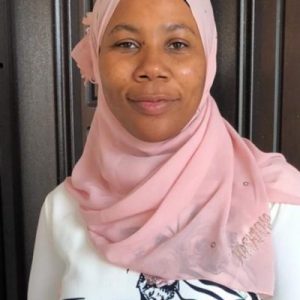 Federated Commodities was incorporated in March 1996 just four years after the government decided to privatise the industry. We used to have PBC (Produce Buying Company) as the sole buyer before the government privatised things to encourage competition in the marketing of cocoa.
Federated Commodities was incorporated in March 1996 just four years after the government decided to privatise the industry. We used to have PBC (Produce Buying Company) as the sole buyer before the government privatised things to encourage competition in the marketing of cocoa.
Global Haulage is our mother company and we are part of the Licenced Buying Companies (LBCs) within the group. Federated Commodities is the pioneering LBC in the group and we are the largest. The four buying companies in the group used to control about 20 percent of the market share. Things have changed over the years with the entry of more firms into the cocoa buying space. Despite the challenges in the industry and the fact that there is increased competition, we remain the top cocoa buying group in the country. Our vision is to be the indigenous LBC of choice for farmers and investors.
The wellbeing of the farmer is of high priority to us. We strive to have a relationship beyond just transactions with our fifty thousand plus farmers who make up our supply base. We were amongst the first indigenous privately owned firms to go into sustainability when it was opened to local firms back in 2012. Sustainability helps us when it comes to traceability and direct certification of the cocoa beans. The company has achieved several milestones since then. We have a large fleet of vehicles, as well as a subsidiary that does not only cocoa haulage but also other endeavours related to the industry.
Moreover, we have diversified into the cashew market which gives us a great alternative during the lean period of the cocoa season. Part of our community engagement drive is getting into farm service agreements with individual farmers. Deals like that will see us take care of their yield in exchange for the commodity after harvest. Processing is part of our long term plan as well.
Hajia Maria Adamu, Managing Director at Federated Commodities. Ghana
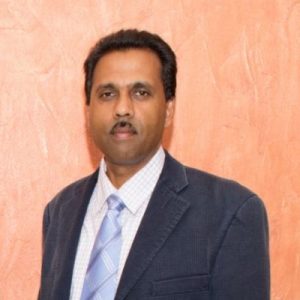 In the beginning, it was all about hard work and perseverance. At the core of it all was family, and everyone in the family coming together. The focus was always on giving good service and value to customers. Money and profit were always secondary to that, although if you get the service to customers right, the profit will come. We are not a small family business any more but those values are still there. When the customer is satisfied we are satisfied.
In the beginning, it was all about hard work and perseverance. At the core of it all was family, and everyone in the family coming together. The focus was always on giving good service and value to customers. Money and profit were always secondary to that, although if you get the service to customers right, the profit will come. We are not a small family business any more but those values are still there. When the customer is satisfied we are satisfied.
We are looking at moving into Seychelles and Mayotte which is a French territory and quite an interesting market, and we are looking to Madagascar as well. In the case of Madagascar, people are advising caution as it is such a poor country but we don’t need access to 100% of the population, we only need 3 to 4% and we have a niche market there which can work. In these markets we are looking at both wholesale and retail, we will be developing small retail stores, not large supermarkets.
When a country moves from a poor developing nation to a middle-income nation the young people don’t want to dirty their hands any more. It is normal, people don’t want to get up at 5am to go work in the fields. So, there is that problem we have – people need to eat and for that people need to farm. We have 150 farmers who farm for us at SKC Surat.
We have a project where we inculcate our farmers – who are third generation now – with best practices to stop putting too much insecticide and pesticide on their vegetables. There is that problem in Mauritius which has been passed down from previous generations. There are many pests like fruit flies in Mauritius and there is a perception that in order to kill the pests the more you spray the better. What is happening though is the food is absorbing the pesticide, which leads to very serious health problems including increased risk of cancer for the consumers, for the people of Mauritius.
Suren Surat, CEO at SKC Surat. Mauritius
Ayodele Olajiga is an entrepreneur, consultant, and investor. Mr. Olajiga has extensive experience in the African financial services sector, having served in senior management roles at Rand Merchant Bank in Nigeria and South Africa. Mr. Olajiga was also a consultant with Mckinsey&company where he served several large companies across Africa.
Mr. Olajiga is the Co-Founder of Foodpro Limited, a leading Nigerian-based retail snacks business focused on processing and producing superior quality cashew nut products for retail and commercial customers in Nigeria and globally.
Mr. Olajiga is active in the agribusiness sector as an investor, advisor, and consultant.
Ayodele Olajiga, Co-Founder of Foodpro Limited. Nigeria
 Our continent has been desensitised for a while about the value of our produce. We produce so much but retain so little in terms of the value the commodity produces. The need for sustainability in our farming techniques and our processing activities has not been emphasised enough as well. It is time we rise to the occasion when it comes to these issues and we will see a quicker turnaround in production.
Our continent has been desensitised for a while about the value of our produce. We produce so much but retain so little in terms of the value the commodity produces. The need for sustainability in our farming techniques and our processing activities has not been emphasised enough as well. It is time we rise to the occasion when it comes to these issues and we will see a quicker turnaround in production.
It has to start with us ramping up our food tracking capabilities. International standards demand that one should be able to tell where the produce originated from and that is one of the hallmarks of agricultural sustainability. Stepping up our local processing capacity is also a major pillar of sustainability. Our goal is to catch up on the value chain and not just remain a producer of raw goods. Although processing can be capital intensive with money hard to come by especially in the current climate, we must find a way to finance our agro-processors.
Ramped up agro-processing ensures the retention and creation of jobs as well as a variety of products in the market. We approach and work with our government as a development agent that wants to avail opportunities to the youth. We are indeed on the right track when it comes to boosting crop production and increasing our processing capabilities. I believe there will be an even better story to tell in five years.
Babatola Faseru, President of African Cashew Alliance. Nigeria
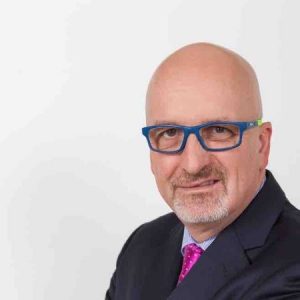 As a company, we do well to aggregate our cane with outgrower cane to produce sugar and molasses for the sugar association. We buy back the molasses and put that into our plant to produce portable ethanol. We then sell the ethanol to industries that use alcohol as part of their process. Soon we will be producing fuel ethanol which could become about half of our output.
As a company, we do well to aggregate our cane with outgrower cane to produce sugar and molasses for the sugar association. We buy back the molasses and put that into our plant to produce portable ethanol. We then sell the ethanol to industries that use alcohol as part of their process. Soon we will be producing fuel ethanol which could become about half of our output.
We should be able to serve the local market as well as the Zimbabwe and South Africa markets once we get everything ready. In about 2 years, we intend to begin to produce alcoholic drinks at retail level. Our zeal to diversify our products has driven us to set an ambition to become the top rum producer in Africa with high quality aged rum.
Our operation could thrive even more because of the common Southern African market (SACU) that allows Eswatini companies to compete in the region. It will be an uphill battle to fend off competition from more established South African names, but we are confident in our abilities. We will also take advantage of the AfCFTA to trade more with countries like Kenya which are outside the region.
Eswatini will also benefit from our ambitions of creating a big bioplastic operation that will see us produce bioplastics. We will start by producing polylactic acid which is always a precursor for the production of bioplastics.
Nick Jackson, Managing Director of Royal Eswatini Sugar. Eswatini
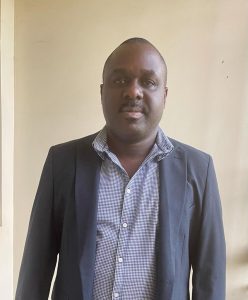 If you look at the entire region that consists of Kenya, Rwanda, Tanzania, Burundi, DRC, and South Sudan, Uganda has 40% of the arable land. We also have massive potential if you look at production per acre of a commodity like rice.
If you look at the entire region that consists of Kenya, Rwanda, Tanzania, Burundi, DRC, and South Sudan, Uganda has 40% of the arable land. We also have massive potential if you look at production per acre of a commodity like rice.
Egypt produces an average of about 5 tons per acre of rice while we only produce about half of that yet we have more fertile soil than them. We will get there by improving our practices and improving our seed quality. Once we improve our production capacity, we can then get into value-add processing. Our focus is on maize, rice, sesame and avocado.
We are especially keen on avocado and sesame oils because we have assessed their market potential in Asian and European markets. We feel that Uganda can ramp up its production capacity because the costs of production are low coupled with favourable climatic conditions.
